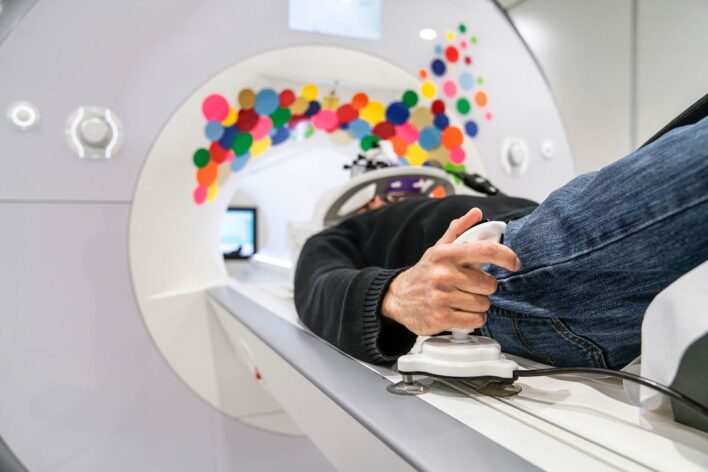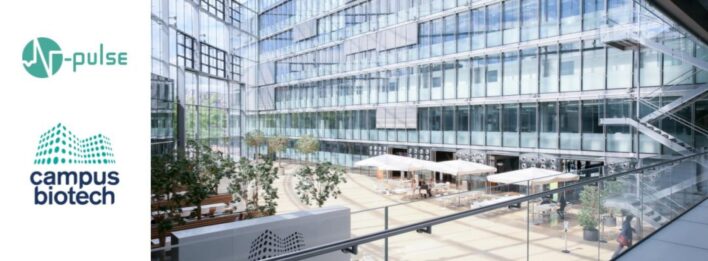News
Campus Biotech: at the heart of networked innovation
A shared perspective on two podcast episodes at the heart of Geneva’s scientific life.
How can academic research, technological innovation, entrepreneurship, and patient impact come together and speak the same language?Through the first two episodes of the Where Science Talks podcast, Campus Biotech gives voice to the people shaping a vibrant and interconnected ecosystem.
On site, cutting-edge expertise comes to life through technological platforms, start-ups, accelerators, and renowned institutions such as the Wyss Center and FONGIT.
At the regional level, this momentum is part of a broader network, structured in particular by BioAlps at the heart of the Swiss Health Valley.
This cross-perspective highlights the richness of approaches, roles, and bridges that help turn science into real-world solutions for patients.
Campus Biotech: a catalyst for innovation in life sciences
In the first episode, Erwin Bottinger (CEO of the Wyss Center, a nonprofit neurotechnology venture builder translating R&D into clinical and market impact), Antonio Gambardella (Director of FONGIT, Geneva’s incubator for tech start-ups), and Nicolas Vachicouras (CEO and co-founder of Neurosoft Bioelectronics, a start-up developing next-generation brain interfaces) share a common belief: Campus Biotech provides a unique environment where research, entrepreneurship and industrialization reinforce one another.
For Erwin Bottinger, shared technology platforms and interdisciplinarity are key drivers for moving “from project to impact”. He emphasizes the need to support initiatives capable of delivering tangible results within a three-to-five-year horizon.
Antonio Gambardella describes a “gravitational center” that helps shape trajectories. Being surrounded by other start-up, he says, fosters experience-sharing, mutual support, and the emergence of new opportunities.
Nicolas Vachicouras highlights the effect of emulation: seeing other entrepreneurs successfully turn ideas into concrete solutions builds confidence and shortens the gap between fundamental science and clinical reality.
All three agree that the Campus ecosystem — from infrastructure and support to informal exchanges — acts as a powerful accelerator for innovation.
Swiss Health Valley: a regional dynamic driven by BioAlps
In the second episode, Magali Bischof, Secretary General of BioAlps, and Sebastien Mazzuri, Director of R&I at the Esperare Foundation, provide a complementary perspective at the regional level.
The Swiss Health Valley encompasses all life sciences stakeholders in Western Switzerland: research institutes, hospitals, innovative SMEs, major corporations, cantons and innovation hubs.
BioAlps acts as a catalyst for interaction — identifying experts, fostering connections, and raising the visibility of talent and projects.
“The diversity of the ecosystem is its greatest strength,” notes Magali Bischof, who highlights the importance of inter-cantonal collaboration and the key role of events in sparking meaningful encounters.
Based at Campus Biotech, the Esperare Foundation illustrates an original model that combines philanthropic funding with a therapeutic development mindset.
It is dedicated to reviving shelved drug candidates through an agile and mission-driven approach.
For Sebastien Mazzuri, being located in Geneva — within a network of scientific, clinical, technological and ethical expertise — is a decisive factor in advancing projects in the fields of rare diseases and prenatal therapies.
A Territory of Impact, from Local to Global
What emerges from both episodes is the power of intelligent network—from the site itself to the broader region. Campus Biotech acts as a point of convergence: a place for creation, exchange with key institutions and partners, and co-development.
Closely connected to it, the Swiss Health Valley provides the regional foundation in which these dynamics take root. BioAlps plays a key role in orchestrating this ecosystem: the team connects stakeholders, promotes projects, and supports initiatives on the ground.
Rooted in Geneva and Western Switzerland, yet international by nature, this ecosystem draws on the density of talent, the complementarity of approaches, and the fluidity of individual trajectories. All with a shared goal: to turn science into tangible, accessible, and patient-relevant solutions.
Two episodes, three key takeaways
First, the importance of a physical, human and technological environment that enables rapid experimentation and scaling up.
Second, the value of inter-cantonal links, regional coordination and the visibility given to talent, all supported by BioAlps within the Swiss Health Valley.
Finally, the recognition that there is no single path to healthcare innovation, but rather a diversity of trajectories — scientific, entrepreneurial, or hybrid — and that their convergence is one of the most powerful drivers of the regional ecosystem.


